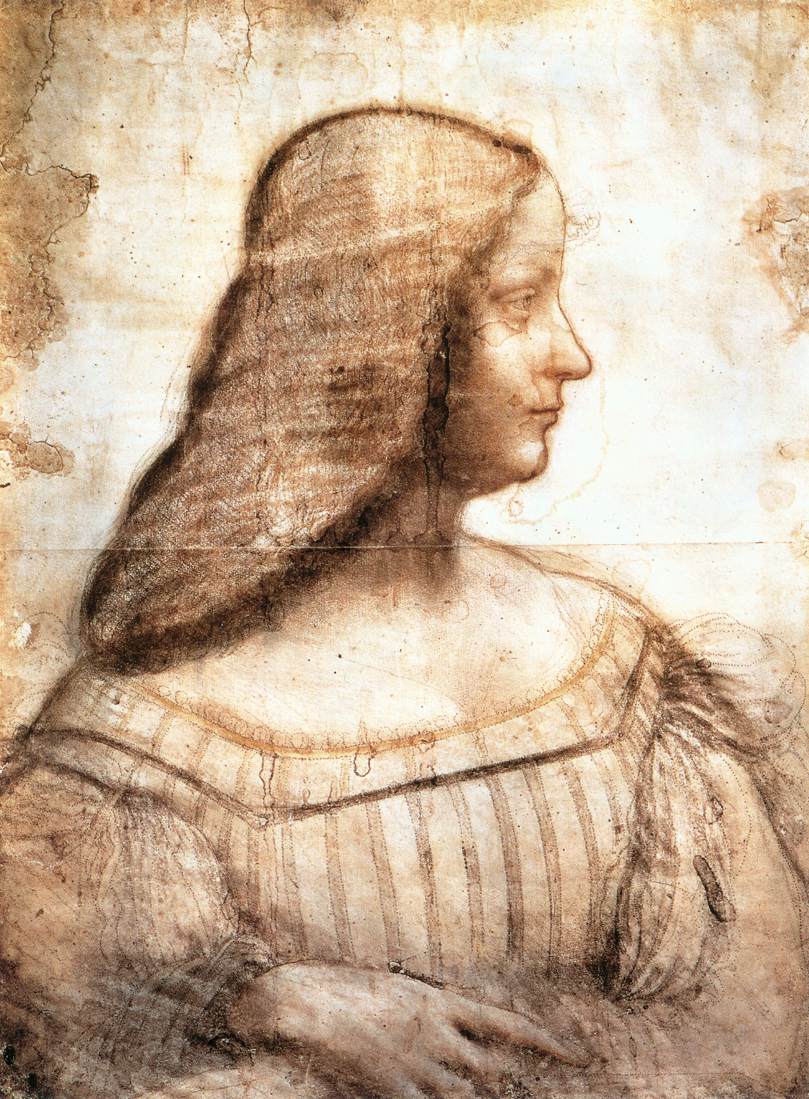The Mindful Mona Lisa: Leonardo, Machiavelli, and Poetics

Leonardo worked closely with the famous philosopher of politics, Machiavelli, on the massive engineering project to divert the Arno river. Machiavelli wrote that politics could be seen as a related metaphor: the flow of events is a river, called “Fortuna” or fortune, which could be shaped by conscious effort into canals, “woven” into the fabric of cities and commerce.
Each person’s own life was also woven metaphorically: “I assert once again as a truth to which history as a whole bears witness that men may second their fortune, but cannot oppose it; that they may weave its warp, but cannot break it” (italics mine).
Machiavelli also used the metaphor of learning and books as a garment:
“When evening comes, I return home and enter my study; on the threshold I take off my workday clothes, covered with mud and dirt, and put on the garments of court and palace. Fitted out appropriately, I step inside the venerable courts of the ancients, where…. where I am unashamed to converse with them and to question them about the motives for their actions, and they, out of their human kindness, answer me.”
Leonardo worked with Machiavelli on the river diversion project in 1503, at the same time that he began work on the Mona Lisa.
The shaping or weaving of a greater flow into a web or fabric of lesser streams having greater complexity is fundamental to biology, all studies of branching, and much more. Machiavelli applied this quite natural metaphor to his philosophy of politics; Leonardo could certainly have applied it to the history of art, inclusive of science and engineering.
Some of Machiavelli’s thoughts on Fortuna are notoriously repugnant: “it is better to be rash than timid, for Fortune is a woman, and the man who wants to hold her down must beat and bully her. We see that she yields more often to men of this stripe than to those who come coldly toward her.”
This is antithetical to the dignity that Leonardo afforded to the concept of Experience, which he personified as spiritual guide, equal, and teacher, much like Dante’s Beatrice:
“Though I may not, like them, be able to quote other authors, I shall rely on that which is much greater and more worthy — on experience, the mistress of their Masters. They go about puffed up and pompous, dressed and decorated with [the fruits], not of their own labours, but of those of others. And they will not allow me my own.”
Leonardo, a recognized expert on Dante in his day, may well have been thinking of his city’s great poet when he compared their respective arts:
“Painting is poetry which is seen and not heard, and poetry is a painting which is heard but not seen. These two arts, you may call them both either poetry or painting, have here interchanged the senses by which they penetrate to the intellect.”
Given Leonardo’s low opinion of war we might see this hypothetical joust between Machiavelli and Leonardo, The Prince and the Mona Lisa, as a contretemps between politics, the art of the possible, and poetics, the possible of art. Perhaps the Machiavellian leaders of our own day will find a more than worthy adversary in Leonardo.
Next blog: Garment and Metaphor
